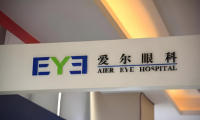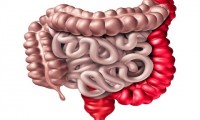-
DeepScribe Brings Ambient AI to AWS Marketplace
- Source: drugdu
- 389
- April 17, 2024
-
Preclinical Safety Signal Prompts FDA Clinical Hold on Neumora Schizophrenia Drug
- Source: drugdu
- 293
- April 17, 2024
-
its hospitals frequently violate the law in advertising, and are repeatedly fined for illegal use of medical insurance funds
- Source: drugdu
- 564
- April 17, 2024
-
Francis Crick researchers reveal pathways linking intestinal inflammation and colitis
- Source: drugdu
- 339
- April 17, 2024
-
Nine UCL researchers secure £560m in research funding from ERC
- Source: drugdu
- 420
- April 17, 2024
-
A Wearable Tech Gives Pharmas & Therapists Better Feel for Changes in Mental Health
- Source: drugdu
- 367
- April 16, 2024
-
Novartis, Arvinas Agree to Strategic Collaboration to Develop Treatment for Prostate Cancer
- Source: drugdu
- 524
- April 16, 2024
-
Genetic Testing Combined With Personalized Drug Screening On Tumor Samples to Revolutionize Cancer Treatment
- Source: drugdu
- 522
- April 16, 2024
-
Virtual Skin Biopsy Determines Presence of Cancerous Cells
- Source: drugdu
- 443
- April 16, 2024
your submission has already been received.
OK
Subscribe
Please enter a valid Email address!
Submit
The most relevant industry news & insight will be sent to you every two weeks.













